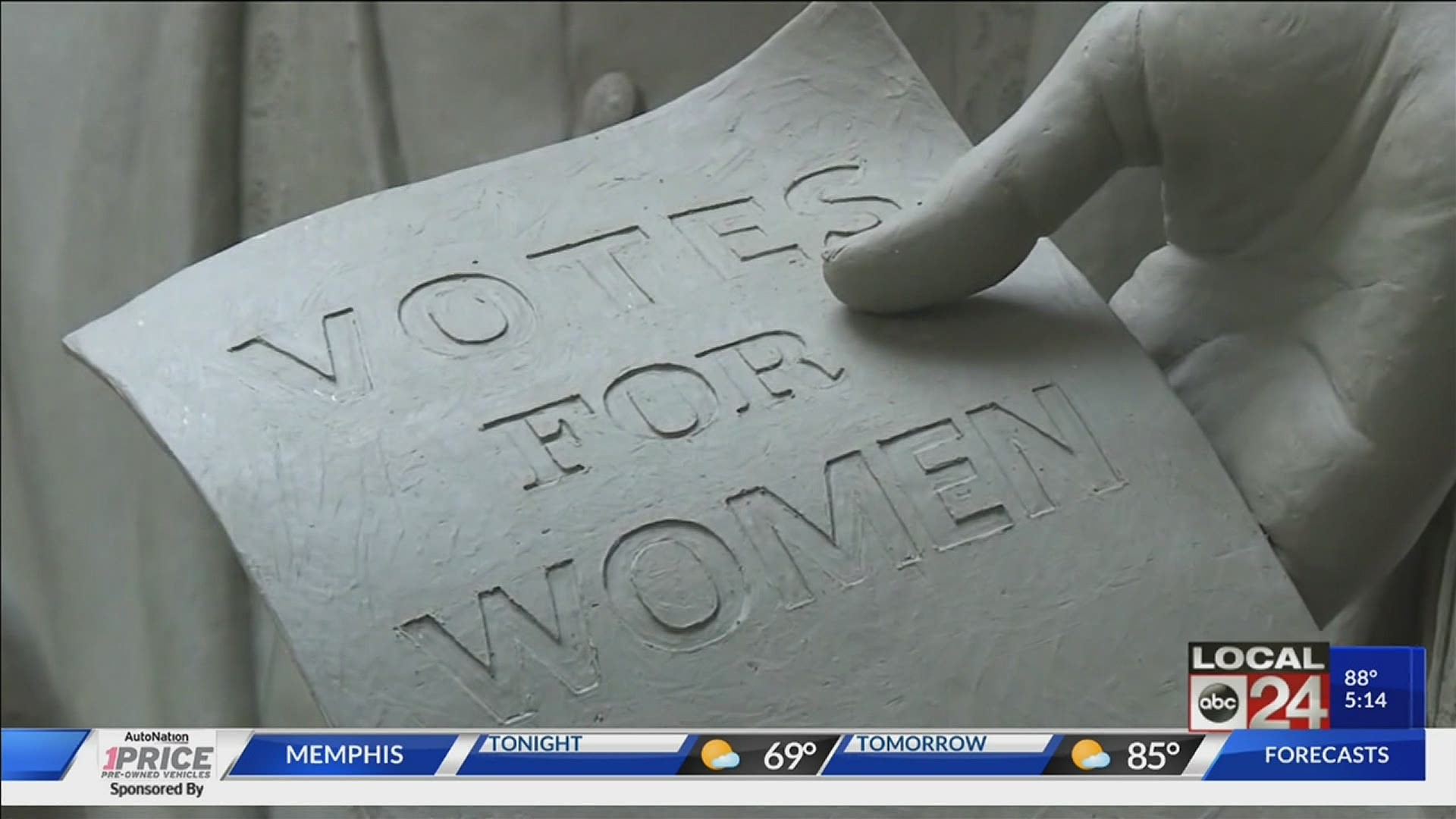MEMPHIS, Tenn — On the House floor of the Tennessee State Capitol, actors re-enacted the final vote that guaranteed women the right to vote across the country.
The suffragists' vote came down to the state of Tennessee 100 years ago on August 18, 1920. To become a federal amendment, 36 states had to ratify it. The country was stuck at 35 states.
“This issue was so highly contested," Paula Casey, Co-Founder of the Tennessee Woman Suffrage Heritage Trail, said.
Tennessee was either the suffragists' last hope for the dream to become a reality, or their worst nightmare.
Ultimately, in a tight vote, Tennessee voted in favor of the suffragists and opened the doors for women at the voting booths.
“All American women do vote today thanks to Tennessee, because if Tennessee hadn’t ratified, there’s no telling when American women would have won the right to vote," Casey said.
Casey added that West Tennessee played a significant role in the outcome of the vote.
An unsung hero, she said, was Memphis Representative and then-House Floor Leader Joe Hanover. Hanover kept the pro-suffragist votes together during a tense battle at the capitol.
Men may get the final credit for this historic moment, but it was women who got them there.
“It took American women 72 years to win the right to vote. They won it. Nobody gave it to them," Casey said.
The 19th Amendment made it so the right to vote could not be denied on the basis of sex. It reads entirely:
"The right of citizens of the United States to vote shall not be denied or abridged by the United States or by any State on account of sex.
Congress shall have power to enforce this article by appropriate legislation."
However, that last line made it so that there wasn't necessarily a clear path for black women to vote.
“It doesn’t racially discriminate," Casey said. "It granted the right, however, the states are responsible for implementing voting policies and procedures, and that’s where Jim Crow laws came from. That’s where literacy tests came from, poll taxes, voter suppression happens in the states.”
For black women, who fought along white suffragists, their fight would continue through the Voting Rights Act of 1965.
A Memphis "Equality Trailblazers" Memphis Suffrage monument will be put up outside of the University of Memphis Law building in Downtown Memphis facing the river.
It will feature 13 suffragists and women whose careers would not be possible without them. Ida B. Wells, Mary Church Terrell, and Rep. Hanover will be on it.
The pandemic has delayed its installment but the hope is to have it up in October of 2020. More details on the monument can be found here.
To learn even more about the Tennessee suffragist movement visit the Tennessee Woman Suffrage Heritage Trail website.

